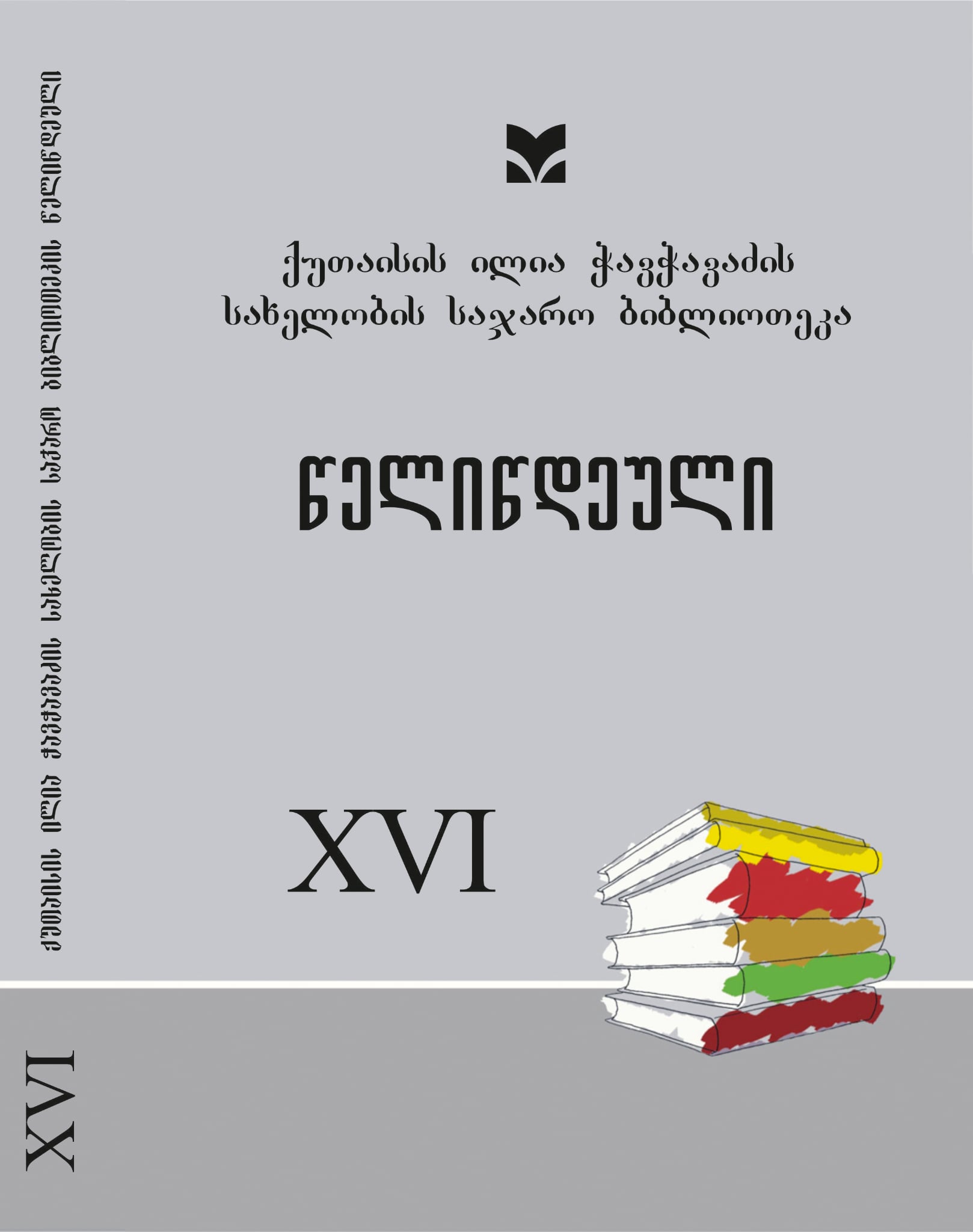Reflection on the August 1924 Uprising in the Emigrant Publication „Mamuli“ – „La Patria“
DOI:
https://doi.org/10.61491/yk.16.2024.9391Keywords:
Georgian émigré periodicals, the August Uprising of 1924, the struggle for freedom, Soviet repressionsAbstract
Periodicals published by the Georgian diaspora in the 20th century constitute an integral part of the cultural heritage of émigré communities. These publications, issued abroad over different years and with varying frequency, consistently reflected the cultural and social conditions of Georgia, as well as aspects of both its distant and recent history. Georgian-language journals and newspapers produced outside the country preserve the reflections of both prominent and lesser-known émigré authors
on the history of their homeland and on the tragic events of their time. Studying this heritage is significant not only for investigating the national past and recognizing the contributions of compatriots living and working abroad but also for drawing insights
relevant to contemporary challenges facing Georgia.
Research on the archives of Georgian émigrés has intensified since the late 20th century. Considerable studies and numerous noteworthy monographs have been published; however, many individual publications and authors still require detailed examination. Among these is Mamuli / La Patria, published under the editorship of Viktor Nozadze in Buenos Aires, Argentina, between 1951 and 1953. According to its publishers, Mamuli is „a collection of native history, literature, and culture“.
Almost all articles in the collection address Georgia’s ongoing struggle against both the old and modernized Russian Empire. Several works reflect on the bloody events of the August 1924 Uprising. In particular, Akaki Papava’s article Thoughts on the Days of August (Mamuli, No. 3, 1952) is dedicated to this uprising.
The publication broadly emphasizes the continuity of the Georgian nation’s national and political life, tracing its origins over 2,000 years and noting its disruption in the early 19th century. It highlights the restoration of Georgian independence in 1918, which was recognized by Soviet Russia on May 7, 1920, along with Poland, Finland, and the Baltic republics. It also underscores international recognition of Georgian sovereignty by countries including the United Kingdom, Belgium, France, Italy, Germany, Argentina, and others. Mamuli stresses that Georgia had a constitution adopted by its Constituent Assembly, guaranteeing full political freedom and human rights-a sovereign state that was subsequently invaded by Soviet Russia in 1921. In this context, reflections on the August 1924 Uprising interpret it as the final stage of these earlier rebellions while suggesting that future resistance would require a qualitatively new model of struggle, preparing the nation to reclaim freedom when favorable circumstances arise.




